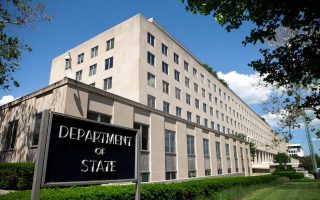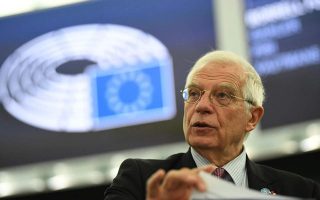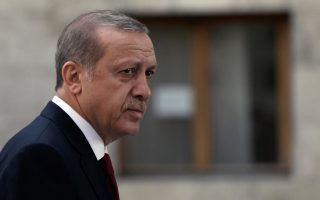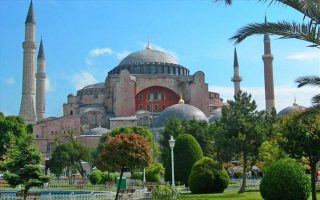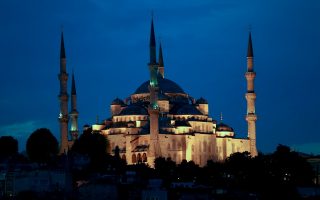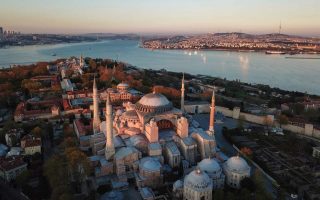Turkey seen undermining global heritage
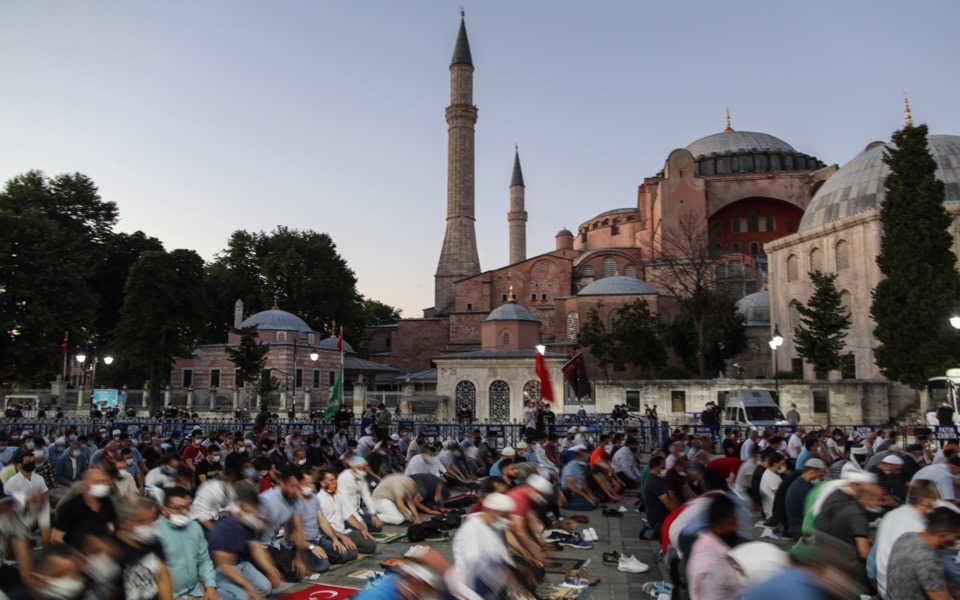
The decree issued on Friday by Turkish President Recep Tayyip Erdogan for the re-conversion of Istanbul’s former Greek Orthodox cathedral of Hagia Sophia into a mosque was seen as a message to both a domestic and international audience.
Erdogan said in an address to the Turkish nation on Friday evening that the first prayers at the Hagia Sophia will take place on July 24.
Greek Foreign Minister Nikos Dendias, during a teleconference with colleagues in the European People’s Party ahead of Monday’s Foreign Affairs Council, described the decision to change Hagia Sophia’s status from a museum as a challenge to global culture and UNESCO.
Erdogan’s move came just hours after the decision of Turkey’s top administrative court, which annulled the November 24, 1934 law of the government of the country’s secular founder Kemal Ataturk, with which Hagia Sophia was originally turned into a museum.
Shortly after the Turkish court’s ruling was announced, Erdogan signed a decree turning Hagia Sophia into a mosque, transferring it to the State Directorate of Religious Affairs, which is also responsible for places of worship in Turkey.
Then in quick succession, the decision was made public in the government gazette, indicating the speed with which Erdogan wanted the conversion of Hagia Sophia into a mosque to proceed. Even the accounts of Hagia Sophia, a UNESCO World Heritage site, on social networks that presented it under its previous status were almost immediately scrapped.
Although the Hagia Sophia case is not a Greek-Turkish dispute, the issue is expected to make it even more difficult for Athens and Ankara to establish effective and candid channels of communication.
However, Friday’s decision did not catch Greece by surprise, especially after the reading of the Islamic prayers in Hagia Sophia during the anniversary celebrations of the Fall of Constantinople (modern-day Istanbul) on May 29.
Erdogan’s move, which cancels a highly symbolic decision by Ataturk in the context of the secularization of Turkish society, was seen as a message to his critics at home who in recent days questioned his determination to go through with the conversion, given the intense pressure from Washington, Moscow and Brussels.
The move also met the demands of extremist radical Islamic elements in Turkey.
The presidential decree was read in the Turkish National Assembly to a standing ovation from deputies of the ruling AKP and the ultra-nationalist MHR, who are part of the governing coalition. Similar enthusiasm was shown by groups gathered outside the Hagia Sophia.
